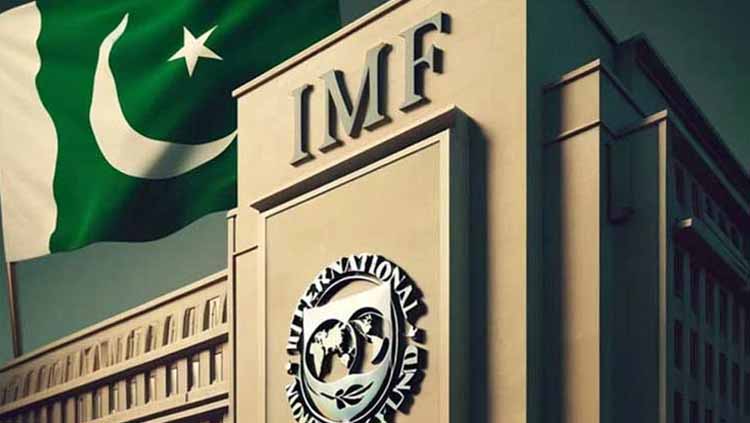IMF approves much-needed $7bn bailout package for Pakistan

Business
IMF decided on Pakistan's plea in its Sept 25 board meeting
Pakistan is expected to receive first tranche of $1.1 billion by Sept 30
IMF loan has been offered at an interest rate of less than 5 per cent
LAHORE (Web Desk) – The International Monetary Fund (IMF) on Wednesday approved the much-awaited $7 billion Extended Fund Facility (EFF) for Pakistan.
The decision was made during an Executive Board meeting chaired by IMF Managing Director Kristalina Georgieva in Washington, with Pakistan's agenda at the forefront.
According to sources, Pakistan is expected to receive the first tranche of $1.1 billion by Sept 30.
Following the approval of the loan programme, the second tranche is also anticipated within the same fiscal year, with the IMF loan being provided at an interest rate of less than 5 per cent.
The Extended Fund Facility loan programme was agreed upon between Pakistan and the IMF on July 12 last.
With the approval of the loan, Pakistan's economic and foreign exchange reserves are expected to improve, and the pressure of payments on Pakistan will decrease.
Earlier, Prime Minister Shehbaz Sharif told media after a meeting with Turk President Tayyip Erdogan that Islamabad had met strict conditions of the IMF and hoped that it would get fiscal assistance to stabilise the country’s economy.
PAKISTAN SANGUINE ABOUT DEAL
On Tuesday, Finance Minister Muhammad Aurangzeb expressed optimism about approval of the $7 billion Extended Fund Facility (EFF) by the International Monetary Fund (IMF) in its today's meeting.
The IMF announced that its board would meet on Sept 25 to discuss the EFF for Pakistan.
Addressing a seminar on "CPEC Phase-two and the region" in Lahore via video link, the finance minister said the confidence of investors in the country had increased.
He said phase one of the China-Pakistan Economic Corridor (CPEC) focused on infrastructure development while phase two would now focus on the monetisation of phase one and was set to commence.
Aurangzeb said the private sector had the potential to drive the country's economic growth. The foreign investment in the country was increasing, he added.
He reaffirmed the government's commitment to providing favourable conditions for investors from China and Saudi Arabia and expressed optimism about the success of the IMF programme.
A few days earlier, the finance minister claimed that all matters with the International Monetary Fund (IMF) had been resolved.


